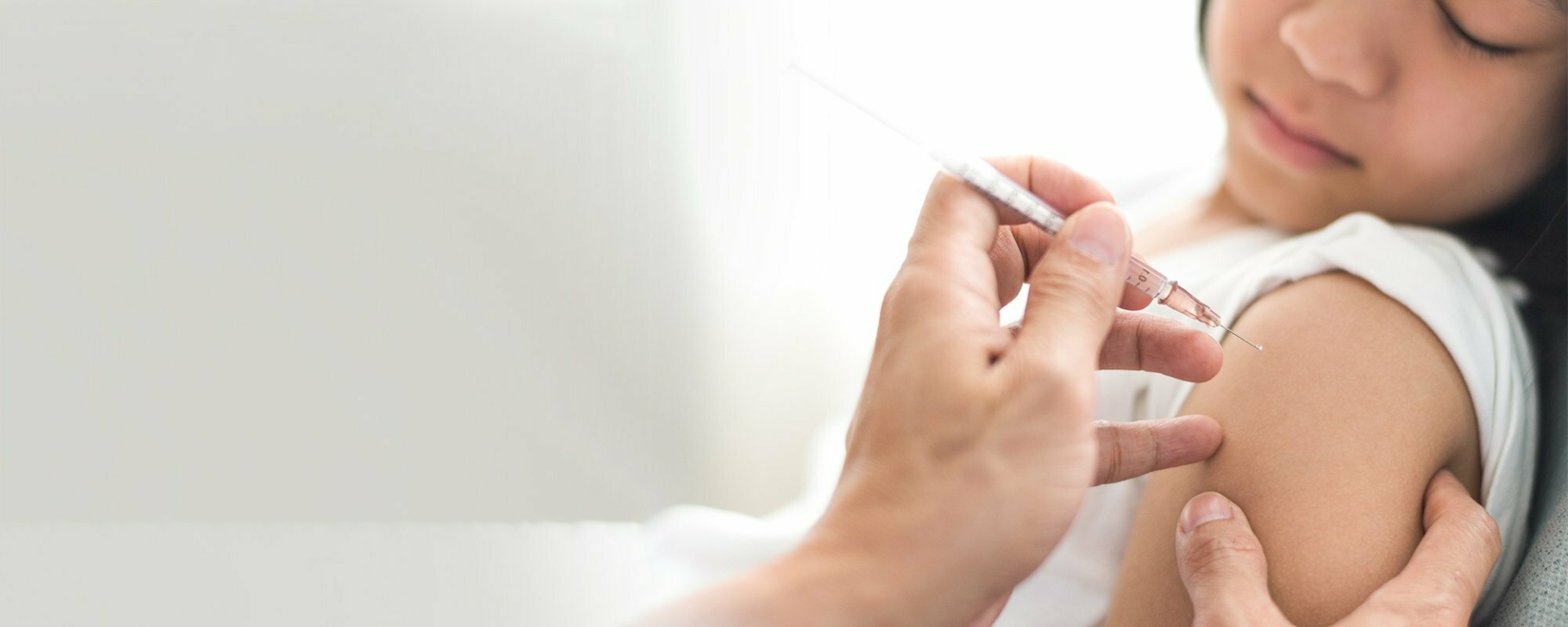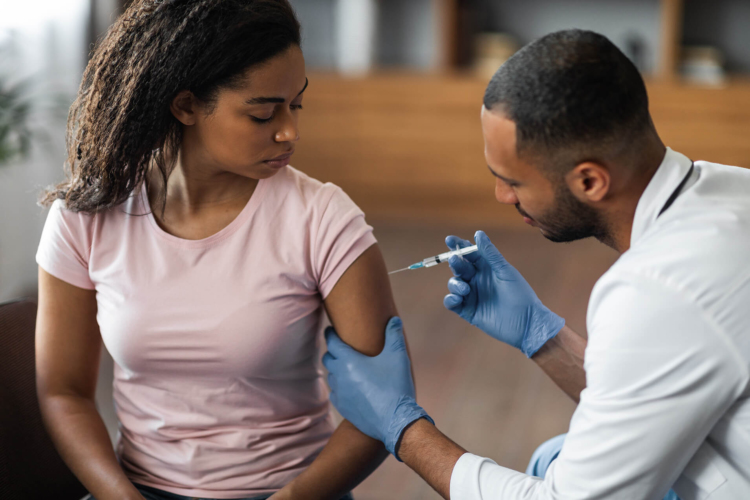Vaccination is one of history’s ten most important medical discoveries. A global medical and scientific consensus exits concerning its relevance, effectiveness and necessity.
To help you easily understand the importance of vaccination, let’s start at the beginning: what is a vaccine?
There are two types of vaccines: live attenuated vaccines and inactive vaccines. The vast majority of vaccines belong to the second category, which means that they are made using portions of dead bacteria or viruses.
As for live vaccines, they are made with minimal amounts of bacteria or attenuated viruses, that is to say, weakened by a treatment to destroy their infectiousness. This type of vaccine is not recommended for people with a weakened immune system. This is why, collectively, we must get vaccinated: it is the only form of protection for this vulnerable population.
There are only five live vaccines available as part of the Quebec immunization program:
- MMR (combined vaccine for measles, mumps and rubella)
- MMR-Var (combined vaccine for measles, mumps, rubella and chickenpox)
- The chickenpox vaccine
- The rotavirus vaccine
- The intranasal flu vaccine
All of the other vaccines are inactive and can’t, therefore, in any case, cause the disease. Fears about vaccination only concern live vaccines, which have all been refuted by rigorous scientific studies.
How to vaccines protect against disease?
Contrary to what you may think, how vaccines work is rather easy to understand. The Santé Québec website offers a pretty accurate metaphor: after a vaccine, our body draws a replica image of the virus or bacteria so it can be recognized the next time our body comes into contact with it, and then our immune system can intervene quickly.
Our immune system needs to be in contact with an illness to produce specific antibodies and learn how to protect itself. Then the next time the illness appears, our body is ready to fight.
Vaccines allow our bodies to produce these antibodies without causing the real diseases. They strengthen the immune system, they do not weaken it.
Since flu is a virus with a thousand faces, a new vaccine has to be developed each year, depending on the strains of the virus in circulation.
Why do you need two doses of some vaccines?
The immune systems of children under 9 are not mature enough to produce enough antibodies to ensure effective protection after only one exposure to a disease. The second dose of a vaccine allows the immune system to produce more antibodies.
Is vaccination effective?
No vaccine is 100% effective, as is the case with any medication.
A vaccine’s effectiveness varies depending on several criteria: the age, medical conditions, and general health of the person being vaccinated, as well as the degree of similarity between the strains of virus circulating and those in the vaccine.
When it comes to highly contagious diseases, the percentage of people vaccinated in a society also influences a vaccine’s effectiveness. For example, for the measles vaccine to be effective, 95% of the population has to be vaccinated.
Nonetheless, vaccination has proved its worth:
- Due to vaccination, some deadly diseases have been eradicated. For example, polio no longer exists in Canada. We went from 5,000 cases per year to 0. The same goes for smallpox; no cases have been
- reported since 1977, whereas it used to kill 3,000 people per year in Canada.
- Mass vaccination for chickenpox implanted in Quebec in 2006 has reduced hospitalizations due to its complications by 85%.
- Since the implementation of immunization programs, whooping cough has been reduced by 93%, chickenpox by 99% and measles by 99% (statistics from August 2017).
- Endemic measles was eradicated in 1998 in Canada (however, imported cases can lead to breakouts where a high percentage of people aren’t vaccinated. However, the vaccine is extremely effective: 99% of people who receive two doses are protected from the disease.
Scientifically proven facts:
- Vaccines do not overload the immune system: it is safe to administer several vaccines at the same time.
- Nothing can replace the protection that vaccination offers (healthy eating habits, homeopathy, etc.). The risks related to the diseases that vaccination protects against are much higher than those associated to the vaccines themselves.
- There is no scientific evidence that establishes a link between vaccination and autism, sudden infant death syndrome, multiple sclerosis, autoimmune diseases, or Alzheimer’s disease.
Why get vaccinated for diseases that have been eradicated?
Even with an effective vaccine, some diseases can never be eliminated completely. This is the case for tetanus, since it is bacteria that lives in the ground.
What’s more, travelling in certain countries which do not have an immunization system comparable to ours, or where outbreaks of disease occur carry risks of bringing these diseases back into Quebec. Measles outbreaks in Quebec and Canada in recent years are telling examples of this.
If we were to stop vaccination tomorrow morning, infectious diseases that are now rare would resurface and spread extremely rapidly.
What are the side effects of vaccines?
Vaccines are very safe. However, like any medication, they can sometimes cause side effects. For example, in a small proportion of people, there is a possibility that certain live vaccines will cause a weakened form of the disease that they provide protection for. This mostly shows the effectiveness of the vaccine and does not suggest any real danger.
As for the inflammation caused by vaccines (pain, redness or a feeling of heat), it is actually a defense mechanism. The body sends as much blood as possible to the injection site, thus concentrating its antibodies in order to isolate the “threatened area” and quickly fight to avoid the infection. Then neighboring cells swell with water to create additional protection.
All of the side effects caused by vaccines are constantly monitored through the Quebec program “Effets secondaires possiblement reliés à l’immunisation” (ESPRI), in conjunction with the Public Health Agency of Canada and the World Health Organization’s international program. In this way, unexpected, serious or rare side effects can be detected quickly and a rapid intervention can be executed if need be. If a vaccine provokes an unusual reaction, public health authorities are immediately informed by health care specialists.
Getting vaccinated is not mandatory in Canada, but it is strongly recommended. This is why the entire Quebec population has access to various immunization programs free of charge.
The information contained in this article does not replace in any way advice from a health care professional. If you have questions, talk to a doctor or to your Accès pharma chez Walmart-affiliated pharmacist.
This information is not a substitute for professional medical advice and Accès pharma affiliated pharmacist-owners cannot be held responsible for this information. The information was true and accurate at the time of publication, but it is subject to change.





